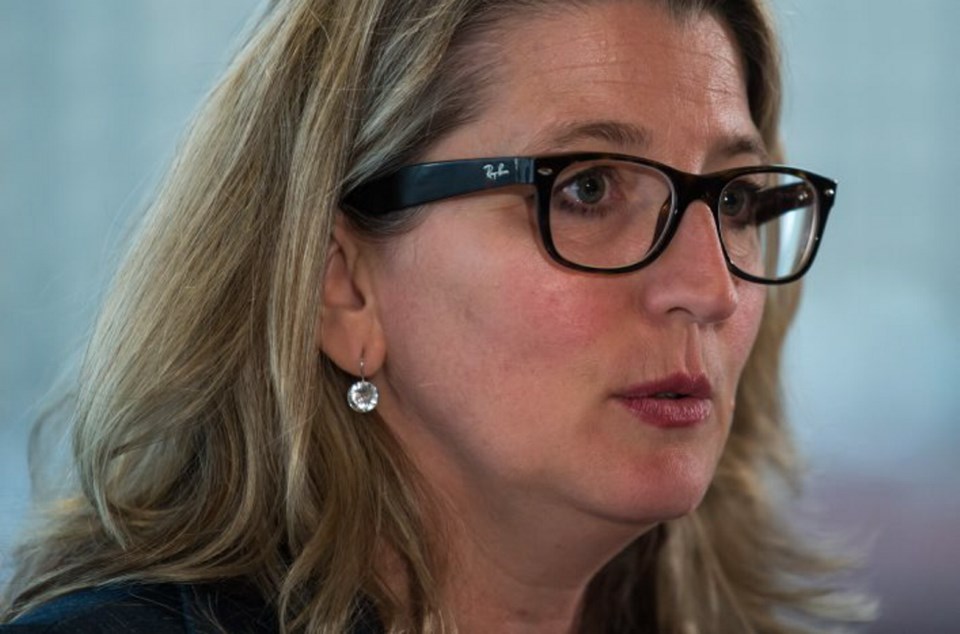The B.C. government is proposing to relax restrictions for secondary homes on farms, after a backlash from farmers.
Agriculture Minister Lana Popham said protests and public consultation persuaded her to re-examine 2019 legislation that was designed to ban so-called mega-mansions on farms, but also forced farmers to get approval from the Agricultural Land Commission to build small secondary residences.
“We figured if it passes through local government and meets all the requirements there, that’s good enough,” Popham said.
The proposed regulatory changes, which went out for public consultation this week, would also no longer restrict secondary residences to just farm use, immediate family or manufactured homes. Farmers could even build to rent, and use the income to subsidize farm operations.
The size of such houses would be capped at 1,000 square feet.
“Most people aren’t full-time farmers,” Popham said. “Being able to have somebody that you bring on to help you with the work on the farm, or look after kids or help out with aging parents, it all adds up to being more flexible and realistic with the lives people are living.
“But at the same time, with 1,000 square feet, we’ve really made sure this isn’t going to be a whole bunch of monster homes popping up.”
The previous restrictions had angered farmers, who protested outside the legislature in October to say the cumbersome applications, delays and uncertainty would mean aging farmers couldn’t hand off operations to the next generation because there was nowhere for children to live while working their parents’ land.
Others complained they needed the flexibility of small secondary buildings to house workers, part-time help or aging loved ones.
“I thought that was pretty fair, and I think just making it so strict to be an immediate family member really doesn’t reflect what’s going on on the ground of B.C. anymore,” said Popham.
“We’ve also opened it up to allow for not just a mobile home or manufactured homes, which was really the old way of doing things. We’ve proposed garden suites would be fine, guest houses, carriage suites, you can build accommodation above an existing building, and then, of course, manufactured homes.”
Meghan McPherson, a prospective hobby farmer in Courtenay whose Facebook page became a 4,000-member grassroots lobby group, said she was elated that Popham has listened.
“This is the best-case scenario in my mind for what is needed to give people the stability of housing,” she said. McPherson said it will help with succession planning, mortgages, financial viability of farms and the overall housing crisis.
Primary residences will still be limited to 5,400 square feet, to prevent mega-mansions, said Popham.
Other changes are also coming out of the recent public consultation, said Popham, including a drop in ALC application fees from $1,500 to $900 and a redistribution of more revenue to local governments.
However, the proposal does not address criticism that small scale food-to-table restaurants and breweries are often rejected on farm land. Popham said she continues to review that.
Liberal agriculture critic Ian Paton said the changes make sense.
“To allow smaller houses, I’ve promoted that for ages,” he said. “I’ve been a farmer my whole life and if you want the next generation of young people to come along and want to take over mom and dad or grandpa’s footsteps on the farm, you’ve got to allow them to live on the farm.
“There’s a housing crisis in this province, and yet they’re telling a farmer with 80 or 100 acres sorry, you can only have one house on your farm. That’s ridiculous.”
The government is asking for feedback on the proposal until April 17.
— Rob Shaw, Vancouver Sun



